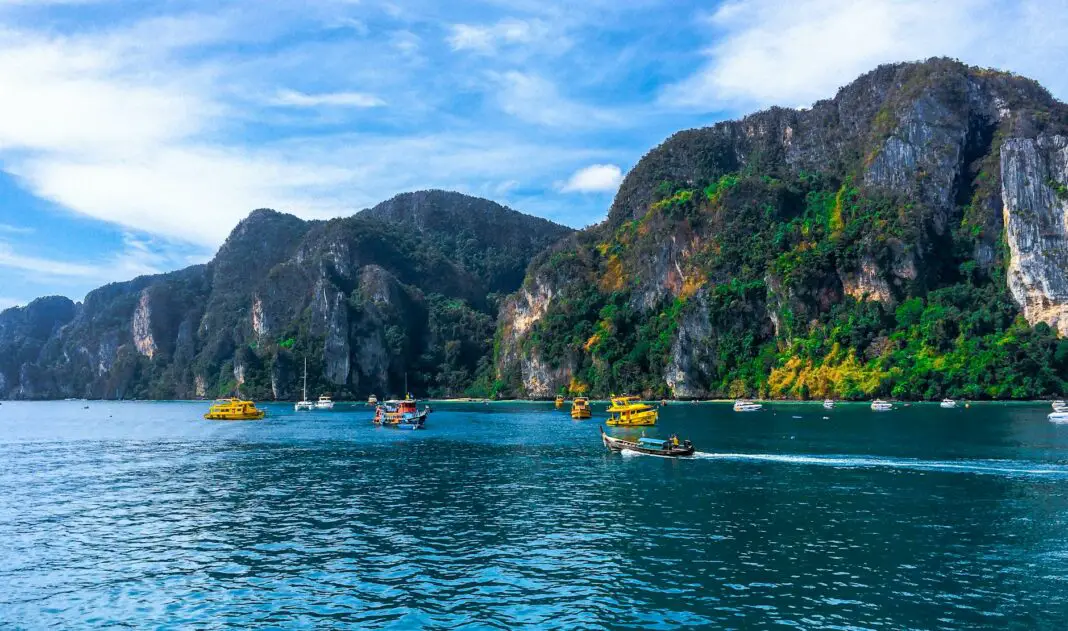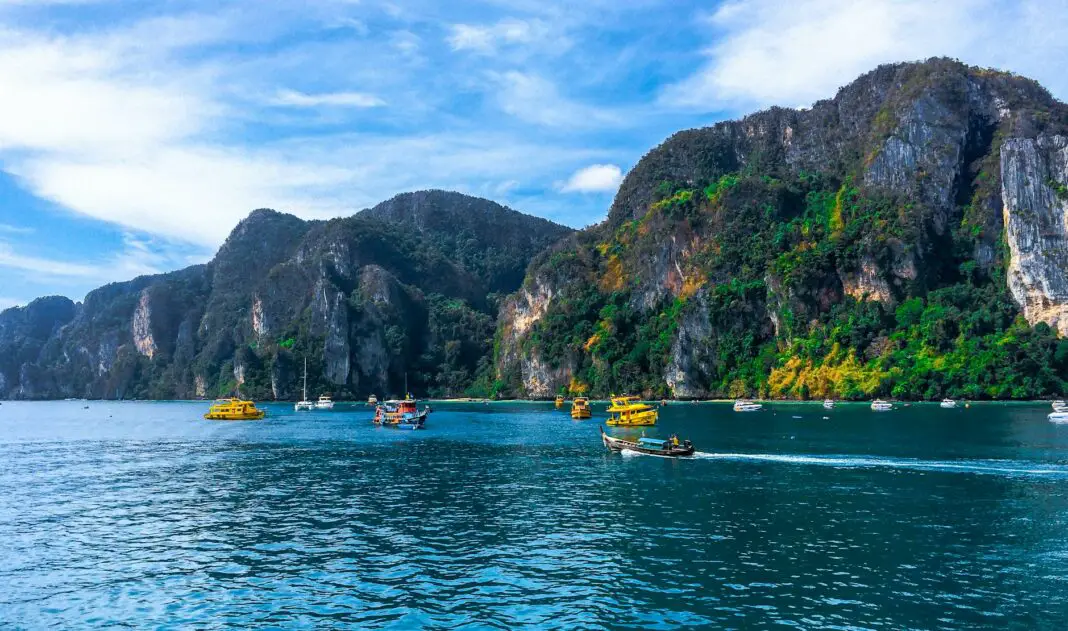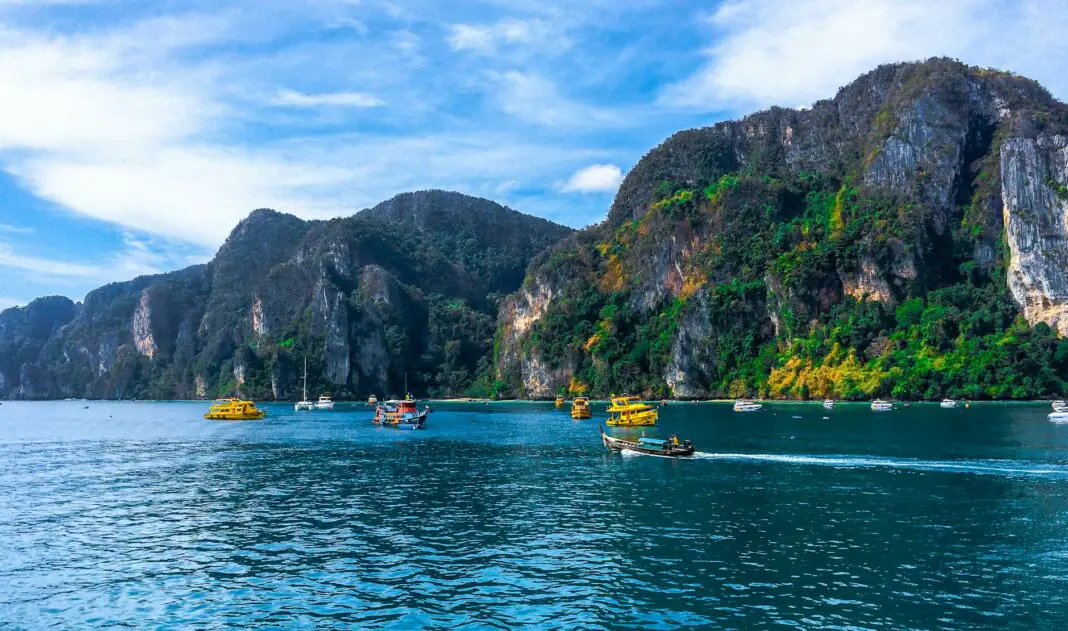Thailand, an enchanting pearl of Southeast Asia, is becoming a premier destination for eco-tourism enthusiasts. Its breathtaking landscapes, rich biodiversity, and commitment to sustainable practices make it an ideal choice for those seeking adventure and environmental consciousness. This blog explores the myriad of eco-friendly experiences this vibrant country has to offer, and whether Thailand is indeed the ultimate eco-tourism paradise that beckons to be discovered. From lush rainforests to pristine beaches, travelers can enjoy a plethora of activities that not only nurture the spirit but also promote conservation and respect for nature.
Join us as we delve into the wonders of this tropical haven, highlighting eco-conscious destinations, sustainable tourism practices, and the intricate relationship between the local communities and their environment. This voyage through Thailand promises to unveil hidden treasures that will inspire your next adventure while advocating for a greater cause—environmental protection. Let’s embark on this journey, as Thailand seeks to redefine tourism in an eco-friendly manner.
Table of Contents
- Eco-Friendly Overview of Thailand
- Top Eco-Tourism Destinations in Thailand
- Sustainable Tourism Practices
- The Cultural Impact of Eco-Tourism
- Actionable Tips for Eco-Friendly Travel
- Empowering Travel: Why Choose Thailand?
Eco-Friendly Overview of Thailand
As the world’s awareness of environmental issues rises, Thailand stands as a beacon of hope and innovation in eco-tourism. This captivating country recognizes the need to balance tourism development with environmental sustainability. With lush jungles, vibrant coral reefs, and diverse wildlife, Thailand passionately works towards creating an awareness of eco-friendly travel options. Visitors are welcomed to explore not only the beauty of the natural surroundings but also witness first-hand the initiatives aimed at conserving these treasures.
This nation has invested time and resources into sustainable development strategies, ensuring that eco-tourism does not come at the cost of its beautiful landscapes and cultures. The government’s support for parks and reserves, alongside active participation from local communities, has laid the groundwork for eco-friendly tourism practices. You’ll find a delightful combination of serene landscapes, cultural heritage, and sustainability-focused adventures waiting for you every step of your journey.
Top Eco-Tourism Destinations in Thailand
Traveling through Thailand presents the opportunity to touch down in some extraordinary eco-tourism destinations, each adding its unique charm to the landscape. Places like Chiang Mai bring together lush mountain ranges and rich cultural heritage, offering eco-lodges and responsible trekking options. Meanwhile, the islands of Koh Yao Noi and Koh Phangan are champions for sustainability, featuring eco-conscious resorts built integration with nature, ensuring minimal disruption to the local environment. Both destinations serve as perfect getaway spots for travelers who seek serenity without compromising their environmental values.
Moreover, the national parks, such as Khao Sok and Erawan, not only showcase Thailand’s breathtaking flora and fauna but also provide opportunities for sustainable activities like elephant sanctuaries and river kayaking. The idea behind these locations is to promote eco-conscious travel without sacrificing the thrill of adventure. Whether hiking through cloud forests or diving in coral reefs, visitors can experience the beauty of Thailand while contributing to its preservation—an alluring proposition for today’s discerning traveler.
Sustainable Tourism Practices
The advancement of sustainable tourism practices is truly commendable in Thailand, where local businesses and organizations work harmoniously to innovate eco-friendly solutions. For instance, many hotels and resorts have introduced waste reduction initiatives, such as eliminating single-use plastics and promoting wastewater recycling. By adopting these practices, they not only minimize their environmental impact but also encourage visitors to adopt similar habits during their travels.
Additionally, educational programs aiming to raise awareness about conservation are becoming increasingly popular. These initiatives not only demonstrate Thailand’s commitment to sustainability but also create a platform for tourists to engage, learn, and contribute positively to the local ecosystems. Engaging with local communities on conservation efforts allows travelers to witness the powerful impact eco-tourism can have, transforming their journey into a profound experience that resonates with purpose and responsibility. Not only does this form of travel enrich the lives of visitors, but it also fosters positive synergies between tourism, conservation, and local prosperity—an inspiring model for future generations.
The Cultural Impact of Eco-Tourism
The intertwining of eco-tourism and local culture creates a powerful narrative in Thailand. By emphasizing sustainable practices, the country honors its rich traditions and cultural heritage. Local artisans, musicians, and chefs often showcase their talents through ecologically focused tourism endeavors, allowing visitors to dive deep into the heart of Thai culture while fostering appreciation and respect for their way of life. This elevates the concept of eco-tourism beyond mere nature; it becomes a celebration of what makes Thailand uniquely beautiful, culturally vibrant, and historically rich.
Cultural tours that are both educational and engaging provide guests with invaluable insights into the lifestyles of local communities. Participating in traditional farming practices or cooking classes not only supports local economies but also promises an immersive experience. By investing in these community-led initiatives, eco-tourists can significantly contribute to preserving traditional Thai culture and ensuring that future generations continue to embrace it. This beautiful synergy serves as a testament to the power of eco-tourism when responsibly executed, showcasing that travel can indeed change lives and help sustain diverse cultures.
Actionable Tips for Eco-Friendly Travel
When venturing into the eco-tourism sector, it is essential to adopt practices that enhance your experience while minimizing your impact on the environment. Begin by researching eco-friendly accommodations that prioritize sustainability, utilize local materials, and respect the natural surroundings. Engaging in local tours that focus on conservation rather than commercial exploitation significantly contributes to the success of eco-tourism efforts.
Additionally, consider utilizing public transportation or renting bicycles to explore the local area. This not only reduces carbon emissions but also allows you to encounter the region at a slower pace, encouraging a more genuine experience. Finally, be mindful of your consumption habits; use reusable water bottles, limit waste, and support local businesses that promote sustainable practices. By incorporating these tips, you’ll enhance your travel experience, enjoy the beauty of Thailand, and contribute to the greater goal of environmental preservation.
Empowering Travel: Why Choose Thailand?
As you contemplate your next travel destination, Thailand emerges as an extraordinary choice that embraces eco-tourism with open arms. The stunning beauty of its natural landscapes, coupled with the warmth of its culture, provides a transformative experience that goes beyond conventional travel. Here, the synergy of adventure and eco-consciousness encourages visitors to create lasting memories while being responsible with their footprints on this planet. By choosing Thailand as your eco-tourism haven, you not only embark on a thrilling journey, but you also support efforts toward preserving the environment for future generations.
Embrace the opportunity to immerse yourself in an eco-friendly adventure where every step you take helps foster a greater purpose. Your choice to explore the lush jungles, vibrant communities, and serene beaches of Thailand not only enriches your life but also empowers those who call this beautiful land home. Together, let’s celebrate eco-tourism that advocates for sustainability, encourages a deeper connection with nature, and promotes cultural appreciation. These aspects form the essence of what makes Thailand a true paradise waiting to be explored.
Frequently Asked Questions
What is eco-tourism?
Eco-tourism refers to responsible travel to natural areas that conserves the environment, enhances the well-being of local people, and promotes awareness about ecological and cultural conservation. This type of tourism encourages travelers to explore areas while minimizing their footprint.
Why is Thailand a great destination for eco-tourism?
Thailand is rich in biodiversity, cultural heritage, and breathtaking landscapes, making it a prime location for eco-tourism. The country actively promotes sustainable practices, offers numerous eco-friendly accommodations, and prioritizes conservation efforts, allowing visitors to enjoy nature while supporting community well-being.
How can I practice sustainable travel in Thailand?
To practice sustainable travel in Thailand, opt for eco-friendly accommodations, use public transportation or bicycles for exploration, participate in community-led tours, minimize waste, and support local businesses. These actions contribute positively to the environment and foster cultural appreciation.
Are there any eco-friendly accommodations in Thailand?
Yes, many eco-friendly accommodations in Thailand utilize sustainable practices, incorporate local materials, and engage in conservation efforts. Options include eco-lodges, boutique hotels, and resorts adhering to environmentally responsible policies, providing guests with an immersive and sustainable experience.
What can I do to support local communities during my visit?
Support local communities by participating in cultural experiences, purchasing artisan goods, and choosing local dining options. Engaging in responsible tourism allows travelers to contribute directly to the well-being and economic sustainability of local populations.
Image Credit: Pexels





